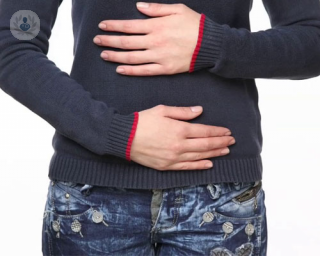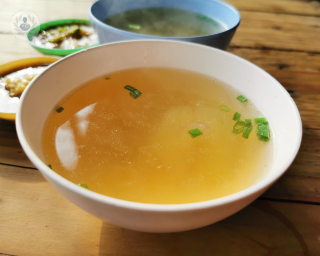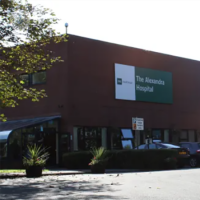Abdominal pain
Dr Devinder Bansi - Gastroenterology
Created on: 11-13-2012
Updated on: 07-03-2023
Edited by: Conor Lynch
What is abdominal pain, and what are the different types?
Abdominal pain can be a symptom of many conditions. It is the name given to pain that radiates between the chest and the groin. There are three different types of abdominal pain, which are categorised as follows:
- burning pain: this type of abdominal pain could be caused by gastritis, an ulcer, or acid reflux
- colic pain: could be due to intestinal issues such as diarrhoea, constipation, or menstrual problems
- stitches: generally caused by excess gases or abdominal swelling

What is the prognosis?
The prognosis of abdominal pain really depends on the cause of the abdominal pain. The causes may range from simple issues such as excess gas to more complicated conditions such as appendicitis or kidney stones. When a person suffers from abdominal pain, the underlying cause must be looked at thoroughly to be able to properly treat it.
What are the warning signs that my abdominal pain may be a sign of a serious medical condition?
There are some symptoms which may be a sign of a more serious condition, such as:
- having a temperature above 38ºC
- vomiting
- blood in the stools
- sudden weight loss
- apathy or pallor
How is the cause of abdominal pain detected?
There are many different tests that can be carried out to effectively determine the cause of an individual's abdominal pain. The main ones are as follows:
- colonoscopy
- abdominal ultrasound
- endoscopy
- abdominal CT scan
- blood test
What are the main potential causes?
There could be many causes for abdominal pain, and so it is important to find the cause and seek medical attention as soon as possible. The most common causes for abdominal pain include:
- food poisoning
- gastroenteritis
- constipation
- appendicitis
- bowel blockage
In addition, abdominal pain can be caused by recurrent issues like:
- irritable bowel syndrome
- allergies or intolerances
- bowel blockage
- diverticulitis
- ulcers
- stress
Can abdominal pain be prevented? If so, how?
Abdominal pain can be prevented by incorporating a healthy and balanced diet into your daily life, and eating small meals often, as this will greatly help digestion. Maintaining a healthy weight and exercising regularly can also help prevent abdominal pain.
How are mild causes of abdominal pain treated?
Treatment will depend on the cause and location of the pain. The specialist will recommend what treatment should be used after careful examination. Treatment to treat mild causes include:
- antacids if the pain is due to indigestion or reflux
- antiflatulents to relieve pain caused by gas or diarrhoea
- antibiotics to treat infections
Which specialist should I see for my abdominal pain?
Generally, the specialist who treats abdominal pain is a gastroenterologist.
I have stomach cramps that are accompanied by bloating. What could be the cause?
If you are suffering from frequent stomach cramps and bloating, trapped wind is the most likeliest of causes.

Tummy bug or irritable bowel syndrome: how will I know which one I have?
If you notice or experience a recent or sudden once-off uncomfortable cramping pain in your stomach that is accompanied by diarrhoea, you will more than likely have contracted a tummy bug, indicating either a viral or bacterial infection in your stomach and bowel.
If, on the other hand, you are suffering from repeated attacks of stomach cramps along with diarrhoea, irritable bowel syndrome, which is a chronic condition, is the most common cause.
When should I seek emergency medical attention for abdominal pain?
It is important that patients contact their GP as soon as possible if they notice the following:
- severe abdominal pain that is concentrated in one specific area
- the pain comes on suddenly and/or unexpectedly
Should I take over-the-counter painkillers for my abdominal pain?
No, it is generally not recommended that patients take over-the-counter painkillers due to the fact that they can actually cause one's abdominal pain to worsen, as these types of medication tend to cause gastric irritation.
What are the main indications that my abdominal pain is serious?
There are certain indications that should prompt an individual to visit their doctor immediately. Someone's abdominal pain is considered serious if the patient is:
- experiencing shortness of breath
- vomiting with blood
- noticing a stiff or firm abdomen
- noticing black or tarry/sticky stools
- has bloody diarrhoea
What foods and drinks should I consume to help relieve abdominal pain?
Foods that contain fibre, such as whole grains, beans, vegetables, and fruits, are highly recommendable for patients suffering from abdominal pain. They have been proven to help when it comes to digestion and thus decrease and relieve abdominal pain that has a mild cause.
Yoghurts are also highly effective as an abdominal pain reliever. It is advisable to drink prune juice (to avoid constipation) as well as herbal teas, such as peppermint and chamomile.
















